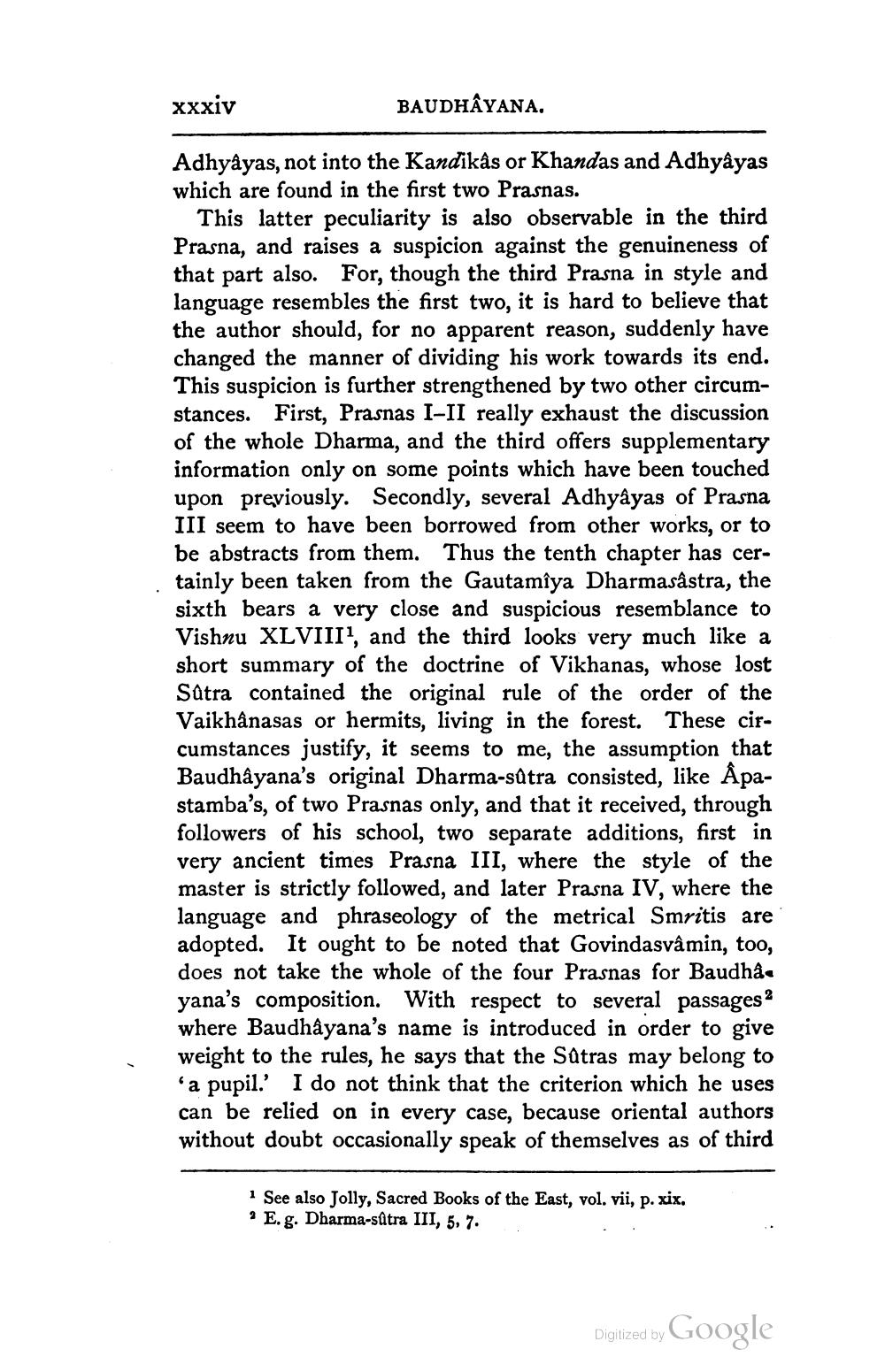________________
xxxiv
BAUDHAYANA.
Adhyâyas, not into the Kandikâs or Khandas and Adhyâyas which are found in the first two Prasnas.
This latter peculiarity is also observable in the third Prasna, and raises a suspicion against the genuineness of that part also. For, though the third Prasna in style and language resembles the first two, it is hard to believe that the author should, for no apparent reason, suddenly have changed the manner of dividing his work towards its end. This suspicion is further strengthened by two other circumstances. First, Prasnas I-II really exhaust the discussion of the whole Dharma, and the third offers supplementary information only on some points which have been touched upon previously. Secondly, several Adhyâyas of Prasna III seem to have been borrowed from other works, or to be abstracts from them. Thus the tenth chapter has certainly been taken from the Gautamîya Dharmasâstra, the sixth bears a very close and suspicious resemblance to Vishnu XLVIII, and the third looks very much like a short summary of the doctrine of Vikhanas, whose lost Satra contained the original rule of the order of the Vaikhânasas or hermits, living in the forest. These circumstances justify, it seems to me, the assumption that Baudhayana's original Dharma-stra consisted, like Åpastamba's, of two Prasnas only, and that it received, through followers of his school, two separate additions, first in very ancient times Prasna III, where the style of the master is strictly followed, and later Prasna IV, where the language and phraseology of the metrical Smritis are adopted. It ought to be noted that Govindasvâmin, too, does not take the whole of the four Prasnas for Baudhâ yana's composition. With respect to several passages 2 where Baudhayana's name is introduced in order to give weight to the rules, he says that the Satras may belong to 'a pupil.' I do not think that the criterion which he uses can be relied on in every case, because oriental authors without doubt occasionally speak of themselves as of third
1 See also Jolly, Sacred Books of the East, vol. vii, p. xix.
E. g. Dharma-sútra III, 5, 7.
Digitized by Google




